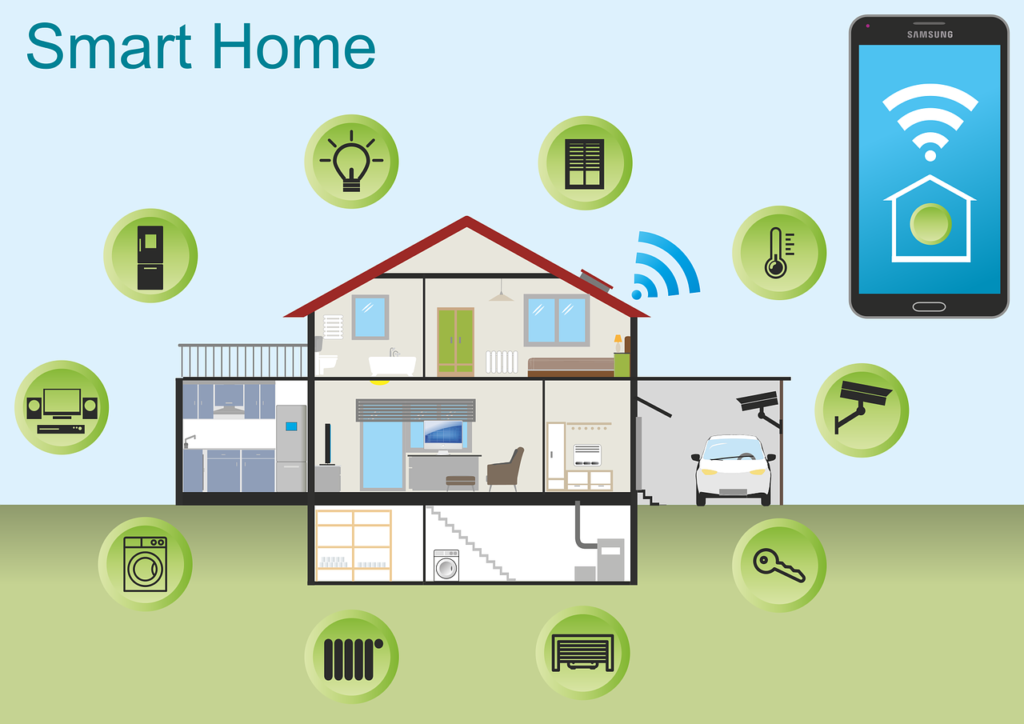
Introduction
The concept of smart homes is rapidly evolving. Advanced control systems are at the heart of this transformation. These systems, powered by cutting-edge technology, make homes more efficient, comfortable, and secure. This article explores how integrating advanced control systems is shaping the future of smart homes and how industrial control panels play a crucial role in this evolution.
The Rise of Smart Home Technology
Smart Appliances
Smart appliances are becoming household staples. They offer convenience and energy efficiency. For instance, smart refrigerators can monitor their contents and alert you when you’re low on milk or if an item is about to expire. Brands like Samsung and LG are leading the charge with innovative features. These appliances can be controlled remotely, making daily tasks easier and more efficient.
Home Automation Hubs
Home automation hubs are central to smart home systems. Devices like Amazon Echo and Google Nest Hub integrate various smart devices. They allow you to control everything from a single interface. For example, you can adjust the thermostat, dim the lights, and check security cameras from one place. This integration enhances the convenience and functionality of smart homes.
Enhancing Comfort and Efficiency
Automated Climate Control
Automated climate control systems are a major advancement. They adjust heating and cooling based on your preferences and routines. Nest and Ecobee are popular choices in this category. These systems learn your schedule and make adjustments automatically. This not only enhances comfort but also reduces energy consumption. Industrial control panels are integral in managing these complex systems, ensuring seamless operation and integration.
Smart Lighting
Smart lighting systems can transform your living spaces by offering customizable settings for different moods and activities. Philips Hue and Lutron are notable examples, allowing homeowners to control lights remotely or schedule automated adjustments. For instance, lights can gradually brighten to wake you up in the morning. This integration enhances ambiance and energy efficiency, while industrial control panels help manage automation and centralized control. Because these lighting upgrades may require additional wiring, panel adjustments, or safe integration with existing electrical systems, many homeowners choose to work with an experienced Tampa electrician, or trusted professionals in their local area, to ensure proper installation and reliable performance.
Improving Home Security
AI-Powered Surveillance
Home security has advanced with AI-powered surveillance systems. These systems use facial recognition and behavior analysis. They can distinguish between family members, friends, and strangers. For instance, the Ring Doorbell and Nest Cam use AI to enhance security. They provide real-time alerts and high-definition video feeds. This ensures that your home is always monitored and protected. Industrial control panels play a key role in integrating these security systems, allowing for real-time data processing and response.
Smart Locks and Access Control
Smart locks offer a new level of security and convenience. They allow you to lock and unlock doors remotely. August and Schlage are leaders in this space. You can grant temporary access to guests or service providers. This feature ensures that you have control over who enters your home at all times. Industrial control panels facilitate the seamless operation of these locks, ensuring reliable and secure access control.
Real-Life Applications
The Johnson Family’s Experience
The Johnson family upgraded their home with smart technologies. They installed a Nest Thermostat, Philips Hue lights, and a Ring Doorbell. The integrated system allows them to control their home from their smartphones. When they are on vacation, they can monitor their home and adjust settings as needed. This integration has made their lives more convenient and secure.
Smart Neighborhoods
Some communities are adopting smart neighborhood initiatives. In these areas, homes are interconnected through a central system. This setup allows for shared resources and enhanced security. For example, the Smart Village in Texas has seen improvements in energy efficiency and safety. Residents benefit from coordinated efforts and shared technology.
Future Trends
Integration with Renewable Energy
Future smart homes will integrate with renewable energy sources. Solar panels and wind turbines will be part of home energy systems. Tesla’s Powerwall is an example of this trend. These systems store energy and reduce reliance on the grid. This integration promotes sustainability and reduces energy costs. Industrial control panels will be essential in managing the flow and storage of energy, optimizing usage and ensuring system reliability.
Advanced AI and Machine Learning
Advanced AI and machine learning will drive future innovations. These technologies will make homes more intuitive and responsive. Predictive analytics will anticipate your needs and adjust settings automatically. This will enhance comfort, efficiency, and security.
Conclusion
The future of smart homes lies in the integration of advanced control systems. These technologies offer unprecedented convenience, efficiency, and security. As they continue to evolve, they will redefine how we live. Embracing these innovations will make our homes smarter and our lives easier.
By integrating advanced control systems, including industrial control panels, we are not just enhancing our homes; we are paving the way for a more connected and intelligent living environment. The future is bright for smart homes, and the possibilities are endless.